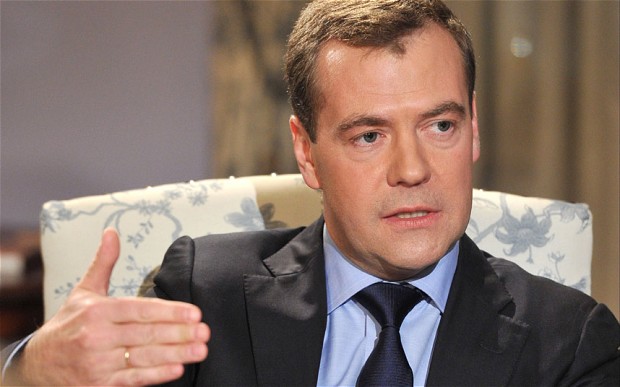Tech
Russian PM Criticises Official For Threats To Block Twitter

By Thomas Grove
MOSCOW (Reuters) – Prime Minister Dmitry Medvedev criticised an official on Friday for threatening that Moscow could block online networking site Twitter, in an apparent attempt to silence rumours that Russia could cut access.
His comments, posted on his Facebook page, came after the deputy director of Russia’s communications watchdog agency Maksim Ksenzov told Izvestia newspaper that Russia’s blocking of U.S.-based Twitter had become “unavoidable”.
“Individual officials, responsible for the development of the industry should sometimes use their brains and not give interviews announcing the closure of social networking sites,” Medvedev wrote.
However, Ksenzov’s comments have heightened fears that the Kremlin is clamping down on media and Internet freedom following the ousting of Ukraine’s Russia-backed former president Viktor Yanukovich by popular protests organised over social networks including Twitter.
There was an immediate backlash on the site. One user named Denis Valeyev joked that Russia would make its own version of Twitter, like China’s microblogging site Weibo.
“Let’s wait for the Russian version – State Company ‘Tweeter’ that everyone can access with their passport details and residence permit,” he said.
With 61 million users, Russia’s Internet audience is Europe’s fastest growing, according to a 2013 report by industry body comScore, and its often opposition-oriented blogosphere has been one of the last media beyond the Kremlin’s reach.
WEBSITE LAW
But Putin, who has described the Internet as a CIA project, signed a law this month requiring websites that attract more than 3,000 daily visits to register by name with Ksenzov’s Russian Communications Supervision Agency and adhere to regulations on the mass media.
The law will also require social media websites to keep their servers in Russia and save information about users for at least six months.
Georgy Satarov, a Kremlin aide under Putin’s predecessor Boris Yeltsin, wrote on his on his blog that new laws were being used to clamp down on dissent at a time when the nation’s attention diverted to the crisis in eastern Ukraine, blamed by Russia’s state media on anti-Russian neo-Nazis.
“The authorities are forming in the minds of Russians the images of internal and external enemies. We acknowledge that there is a transition to a totalitarian fascist regime,” he said.
Talk-show host Ksenia Sobchak, who rose to prominence during the large protest movement against Putin in 2011-12, said the Russian authorities’ fear of Twitter was based on its potential to mobilise protesters.
“Of course Twitter bothers them. It’s an instantaneous mobilisation of hundreds of thousands of people,” she wrote on her microblog.
Opposition to Putin remains even though Putin’s approval ratings have soared following Russia’s annexation of Crimea and protests since then have only been small and sporadic.
Critics say Russia has already taken measures to increase its control over the Internet and media this year.
The editor of popular Internet news site Lenta.ru was dismissed this year and independent TV Dozhd has gone off the air. The head of VKontakte, Russia’s answer to Facebook, has been ousted and fled the country.
(Editing by Alison Williams)






